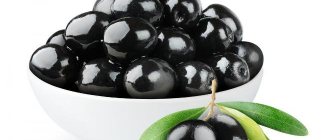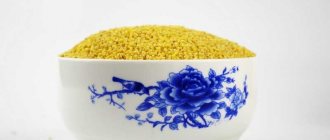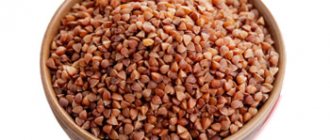The secret to the beneficial properties of sauerkraut: fermentation
According to the Institute of Integrative Medicine at Witten University in Germany, cabbage starter is one of the most common and oldest methods of preparing cabbage, dating back to the fourth century BC (1).
What's so special about fermented vegetables and other foods? Fermentation simply refers to an ancient method of preparing foods that naturally changes their chemistry. Like fermented milk products such as yogurt and kefir, the fermentation process of kale produces beneficial probiotics, which scientists have linked to improved immune, cognitive, digestive and endocrine function.
People use fermentation to preserve valuable vegetables and other perishable foods for long periods of time without the use of modern refrigerators, freezers or canning machines. Fermentation is the metabolic process of converting carbohydrates such as sugars into alcohols and carbon dioxide or organic acids. This requires the presence of a source of carbohydrates (such as milk or vegetables containing sugar molecules), as well as yeast and bacteria.
Microbial fermentation occurs when bacteria or yeast organisms are deprived of oxygen (which is why fermentation was first described as "breathing without air" by early French microbiologists). The type of fermentation that makes most foods "probiotic" (rich in beneficial bacteria) is called lactic acid fermentation. Lactic acid is a natural preservative that inhibits the growth of harmful bacteria (2).
Methods for preparing sauerkraut
There are many unique recipes for preparing each type of cabbage (finely chopped, minced, whole cabbage, combined with cranberries, Korean hot cabbage, etc.), except for sodium chloride (sodium chloride), which has undoubted preservative properties and remains an unchanged component of the dish.
Lactic acid bacteria present in fresh cabbage leaves ferment natural sugars (fructose, glucose, sucrose) from the vegetable juice, resulting in the release of lactic acid - a natural preservative that prevents the growth of fungal microflora and mold.
It is lactic acid that determines the specific smell of the finished product, which resembles the aroma of soaked barrel apples.
The most common sourdough varieties include:
- salting chopped or shredded cabbage;
- pickling whole cabbage;
- salting the heads, cut into halves or quarters;
- combined pickling (with sour berries, mild fruits and root vegetables).
Shredded or chopped cabbage is lightly kneaded with your hands to release the juice, adding salt. Then the product is placed in containers (jars, barrels, buckets, etc.), covered with a thick layer of gauze and placed under pressure. The juice that appears on the surface begins to ferment, and after 2-7 days (depending on the temperature) ripening is completed.
Many people cook sauerkraut along with juicy root vegetables from beets or carrots. Before marinating, you can add sour apples, paprika, garlic, berries (cranberries, lingonberries, viburnum, etc.) to the cabbage. Among the spices in recipes for sauerkraut, ground and whole dill seeds, the most common are various types of pepper and cumin. Sometimes sugar is added to the recipe to speed up fermentation.
How do probiotics in sauerkraut affect the human body?
First of all, the live and active probiotics present in sauerkraut have a beneficial effect on the health of your digestive tract - and therefore the rest of your body. This is because a very large part of your immune system actually lives in your gut and is controlled by bacterial organisms that live in your gut flora. Microbial imbalances are associated with increased risks of developing various diseases, but fortunately, obtaining beneficial microorganisms from probiotic foods has been repeatedly demonstrated to provide comprehensive health benefits in clinical settings (3).
After eating foods like sauerkraut, which provide probiotics, these beneficial bacteria take up space in the lining and folds of your intestinal wall, where they communicate with your brain through the vagus nerve. They also act as your first line of defense against various harmful bacteria or toxins that enter your body. Some beneficial probiotic bacteria found in sauerkraut and other cultivated vegetables are more or less permanent residents because they form long-lasting colonies. Others come and go more quickly but still have important anti-inflammatory effects.
As described in a 2009 report published in The Indian Journal of Medical Microbiology, “the use of antibiotics, immunosuppressants and radiation, among other treatments, can cause changes in the composition of the intestine and influence its microflora. Thus, introducing beneficial bacterial species into the gastrointestinal tract may be a very attractive option for restoring microbial balance and preventing disease” (4).
Lactobacillus plantarum is the predominant strain of bacteria in sauerkraut
A 2006 report published in the Journal of Applied Microbiology states that health benefits of eating foods containing probiotics include: (5)
- Reducing general inflammation (both inside and outside the gastrointestinal tract).
- Improvement in digestive diseases such as leaky gut syndrome, ulcerative colitis, IBS and spider veins.
- Improving immunity.
- Improved nutrient absorption.
- Preventing and treating diarrhea.
- Preventing and reducing symptoms of food allergies, including lactose intolerance, milk protein allergy and others.
- Reducing high blood pressure.
- Reducing the risk of cancer.
- Reducing inflammation in arthritis (rheumatoid arthritis and chronic juvenile arthritis).
- Reducing symptoms of eczema.
- Reducing cholesterol levels.
- Protection against Helicobacter pylori infection.
- Improve vaginal health and prevent bacterial infections such as urinary tract infections (UTIs) and bacterial vaginosis.
- Natural remedy for the treatment of liver/brain disease hepatic encephalopathy.
This is due to the direct and indirect effects of probiotics on various organs and systems, especially how your body produces inflammation and controls hormone production. The "good bacteria" and other organisms that live in your gut can also be considered the organ itself because they are critical to the health of your brain, hormones, heart, lungs, liver and digestive organs (and, after all, contain most of your immune system).
Features of using sauerkraut for certain diseases
The product is beneficial in curing many ailments, but can cause harm in other diseases. It is necessary to find out in advance in what cases the properties of the snack are especially useful, and when it is better not to eat it.
For diabetes
The product contains virtually no sugars and simple carbohydrates, so glucose levels do not increase when consumed. Sauerkraut for type 2 diabetes is a very valuable product for the diet. But there is an important condition - the cabbage must be fermented without using sugar.
This useful product saturates the body of diabetics with vitamins C and B and improves the functions of the pancreas. Regular consumption of snacks helps prevent obesity, which develops very often against the background of diabetes.
The benefits of salted cabbage for gastritis depend on the acidity of the stomach. If the production of gastric enzyme is reduced, then the product will be beneficial, but with high acid gastritis, cabbage and brine will be harmful.
During an exacerbation of a peptic ulcer, the snack will be harmful - its effect on the mucous membranes of the stomach will be irritating. But during the period of remission, it is highly recommended for use, since it helps prevent the next exacerbation.
In acute pancreatitis, the product is strictly prohibited; it will only increase inflammation. It is better to give up sauerkraut during remission or eat very small portions of the product, washing them down with plenty of water.
The properties of the product are good at removing excess salts and uric acid deposits from the body, so eating the snack for gout is not only possible, but also necessary.
For cholecystitis, sauerkraut is allowed, but before using it for food, it must be thoroughly washed, or even better, processed at high temperature.
For hypertension
Sauerkraut contains a large amount of salt. Therefore, if you have chronically high blood pressure, it is better not to eat the product, although sauerkraut without salt may be beneficial. It is also recommended to rinse the cabbage before eating so that as little as possible of substances that increase blood pressure remain in it.
This product affects the functions of the large and small intestines, normalizes microflora after taking antibiotics and various drugs, and increases appetite. For constipation, sauerkraut acts as a mild laxative.
People who have high acidity often suffer from colds, which means that their immune system is weakened. Cabbage starter contains alkali, which normalizes the level of acidity in the body and improves immunity.
Another benefit for the human body in sauerkraut is fiber. It absorbs cholesterol and prevents it from entering the blood. With the help of fiber, bile acids are removed from the body, which develop diseases such as cardiac ischemia, atherosclerosis, and the risk of stroke and heart attack is reduced.
Sauerkraut contains the entire group of vitamin B (B1, B2, B3, B6, B9), which affects nerve impulses, eliminates irritability, fatigue, ensures healthy sleep and increases resistance to stressful situations. People suffering from nervous disorders should add this product to their daily diet.
This unique product does not contain sucrose and glucose, but does contain lactic acid and beneficial enzymes. They are formed during the fermentation of cabbage and affect the functioning of the pancreas, which is necessary for endocrine diseases. Therefore, for diabetes mellitus this product will be simply irreplaceable.
The benefit of sauerkraut for the human body is its high content of vitamin C. This product contains more of it than fruits such as lemon or orange. Vitamin C is essential for boosting and maintaining the immune system, especially during viral infections and colds.
The juice of this product is no less useful than sauerkraut itself. To get it you need to first finely chop the cabbage, then squeeze it. This juice concentrates even more useful substances than sauerkraut itself.
It is advisable to use cabbage brine for dysbacteriosis, gastritis with low acidity, hemorrhoids, and to increase appetite.
Diluting the juice one to two with chilled boiled water has an excellent antibacterial effect. It can be used for sore throat, gums and stomatitis. Undiluted juice will be very useful for burn wounds.
1. All the beneficial properties of sauerkraut are determined by the high content of such elements in its composition.
- alimentary fiber
- vitamins (A, C, E, K, group B)
- microelements (iron, calcium, magnesium and sodium).
Interestingly, cabbage is especially rich in vitamin C, an important element for our immunity. Its content in it exceeds the level of lemons and other citrus fruits.
2. Thanks to its unique composition, sauerkraut has a beneficial effect on the functioning of the gastrointestinal tract:
- reduces bloating,
- reduces gas formation;
- helps with constipation;
- reduces nausea and normalizes digestion.
3. Sauerkraut contains a huge amount of probiotics. Therefore, it is useful for people who suffer from Crohn's disease and ulcerative colitis.
It seems like a very simple and familiar product to us, but few people have thought about its inner wealth.
4. Speaking about the benefits of sauerkraut for the human body, one more valuable quality should be noted. For example, the presence of bacteria similar to fermented milk bacteria, which are formed in sauerkraut during the fermentation process. These bacteria, for example, are able to normalize the intestinal microflora after taking antibiotics, illnesses and poisoning.
Despite all the value of this product, there is still a group of people who will only be harmed by it. For example, contraindications for use are:
- chronic diseases of the stomach and duodenum;
- inflammation of the pancreas;
- renal failure;
- gallstones.
These contraindications are due to the content of a significant amount of acids in sauerkraut.
There is an opinion that abuse of this product by men threatens them with a decrease in potency.
This product is also beneficial for older people. This helps improve the functioning of the stomach and intestines, which can be disrupted over the years, saturate the body with valuable elements and speed up metabolic processes that slow down with age.
Remembering the dangers and benefits of sauerkraut, we can add that this snack is useful for cleansing and restoring the liver.
By purifying the blood, the product slows down the aging process. Regular use helps maintain a bright mind and memory.
Nutritional value, composition and calorie content of sauerkraut
Sauerkraut is a very low-calorie product, but as you can see, it has anti-inflammatory properties and is beneficial for the human body in many ways. In addition to containing probiotics, sauerkraut is a good source of antioxidants and fiber thanks to its main ingredient, cabbage. Even consuming a small amount on a daily basis (just a few tablespoons per day) provides the body with significant amounts of nutrients, including vitamin K, vitamin C, calcium, potassium and phosphorus—and, of course, probiotics. As an added bonus, the growth of microorganisms in fermented vegetables increases their digestibility and increases the absorption of their various nutrients.
One reason you might want to stick to smaller portions of this product is the slightly high sodium level (about 28% of the recommended daily intake per 100 grams of product), given that table salt is one of the main ingredients.
100 grams of sauerkraut contains (% of the recommended daily intake) (5):
- Calorie content: 19 kcal (1%).
- Fat: 0.1 g (0%).
- Fiber: 2.9 g (12%).
- Carbohydrates: 4.7 g (2%).
- Sugar: 1.8 g.
- Protein: 0.9 g (2%).
- Sodium: 661 mg (28%).
- Vitamin C: 14.7 mg (24%).
- Vitamin K: 13 mcg (16%).
- Vitamin B6: 0.1 mg (6%).
- Folic acid: 24 mcg (6%).
- Calcium: 30 mg (3%).
- Iron: 1.5 mg (8%).
- Potassium: 170 mg (5%).
- Copper: 0.1 mg (5%).
- Manganese: 0.2 mg (8%).
Losing weight with sauerkraut
Sauerkraut is effective , which is used by many representatives of the fair sex.
The presented pickle contains only 20 kcal per 100 g of product, so it should be included in your diet daily.
Firstly, the vegetable in this form can improve metabolism.
Secondly, it will begin to actively break down fat deposits.
The sauerkraut diet has two options for its existence.
1. So, the first option is a regular fasting day, when only this pickle is allowed per day, without additional introduction of products.
Such a fasting day is maintained only once a week, or better yet, every two weeks, since unlimited consumption of pickles can negatively affect kidney function.
During a fasting day, you should drink more liquid - water, tea, be careful with fermented milk products.
2. The second option involves a weekly diet in the form of eating pickled salt with the addition of protein foods, legumes, and other fresh vegetables and fruits.
You should stick to fractional meals - at least 5-6 times a day, in small quantities. Flour and confectionery products are prohibited. Also drink at least 2 liters of liquid daily.
In a week of eating this way you can lose up to 5 kg of excess weight.
Diet for diabetes mellitus type 1 and 2. - there is more useful information here.
The benefits of sauerkraut for the human body
Eating sauerkraut helps improve digestion, improves immune function, reduces inflammation and allergies, supports brain health and mood, aids weight loss, and provides the body with antioxidants that help fight cancer.
Helps improve digestion
The microorganisms present in sauerkraut, including the lactobacillus genus of bacteria, “feed” the good bacteria in the intestines, which improves digestive tract health. Research shows that the predominant strain of bacteria in sauerkraut is Lactobacillus plantarum, which appears during the fermentation phase (6).
We still have a lot to learn about the types of beneficial bacteria that grow in fermented foods, but for the first time, a 2003 report published in the Journal of Applied Environmental Microbiology demonstrated the complex processes that occur during the fermentation of sauerkraut (7).
Because beneficial bacteria can help reduce the presence of toxins, inflammation, and bad bacteria living in your digestive tract, probiotic bacteria are helpful in reducing the symptoms of diseases and conditions such as irritable bowel syndrome (IBS), constipation, diarrhea, bloating, food sensitivities, and disorders digestion.
We often hear that probiotic yogurt is one of the best foods for improving digestion and preventing disease, but even though sauerkraut is not a fermented milk product, it also has similar benefits.
In the process, sauerkraut and other fermented foods help you better absorb nutrients from the food you eat, promote regular bowel movements, and even help control your appetite through their effects on hormones.
Improves immune function
Although most people don't realize it, the gut is the organ that contains the majority of your immune system, and the probiotics present in sauerkraut play an important role in regulating gut health. Beneficial bacteria can train, activate, and support the immune system (8).
Recent scientific research has confirmed the important role of probiotics in strengthening the natural barrier against many types of microbial infections. Research has shown that probiotics can be effective in combating diarrhea, Clostridium difficile bacteria (the main causative agent of pseudomembranous colitis), various infections, inflammatory bowel disease, constipation and even cancer. Lactobacillus rhamnosus has been shown to be beneficial for intestinal immunity and can increase the amount of IgA and other immunoglobulins in the intestinal mucosa.
Reduces inflammation and allergies
Autoimmunity is one of the main causes of inflammation. This is a condition in which the body attacks its own tissues. The body, for some reason, suspects that it has been harmed by an external pathogen, regardless of whether it is a food to which you are allergic, or toxins from household and cosmetic products, poor air quality, water quality, etc.
The beneficial probiotics in sauerkraut help increase and regulate NK cells, which are called "natural killer cells" that control the body's inflammatory pathways and fight off infections or food allergy reactions (9). This, in turn, can reduce your risk of developing virtually every chronic disease, from heart disease to cancer.
Supports Brain Health and Mood
Researchers are still learning how gut health and brain health interact—in fact, the relationship is bidirectional. It's not just that your mood can affect your digestion—it turns out the health of your digestive system can also affect your nervous system, brain function, and mood!
All of this is possible because of the vagus nerve, one of the 12 cranial nerves, which helps form the primary channel of information between nerve cells in the enteric nervous system and your central nervous system in your brain. Communication through the vagus nerve occurs through different populations of bacteria in the gut. Depending on which bacteria are present in different proportions inside the gut, different chemical messages can occur that affect your ability to learn, remember, and sort information.
Probiotics are one of the natural remedies for treating mood disorders such as depression. In numerous human trials, adding probiotic foods like sauerkraut to the diet resulted in improved mood and reduced symptoms of depression, making this food a valuable addition in the treatment of depression (10, 11, 12).
In animal studies, probiotic foods such as sauerkraut were also found to reduce some symptoms of anxiety and improve markers of autism (13, 14).
Provides cancer-fighting antioxidants
In addition to the many beneficial effects associated with probiotics in sauerkraut, the essential nutrients present in cabbage also provide comprehensive health benefits. Cabbage is a plant food that fights disease in its own right. Cabbage is part of a group of foods high in antioxidants that are known for their powerful anti-cancer properties (15).
One of the reasons cabbage and other cruciferous vegetables have anti-cancer properties is that they contain various antioxidants and dietary fiber. Cabbage contains phytonutrients, including isothiocyanates and indoles (16, 17). In vitro, they have demonstrated a protective effect against the formation of cancer cells and have a positive effect on reducing inflammation (18).
Sulforaphane, a particularly potent member of the isothiocyanate family, is capable of increasing the production of phase II enzymes, which can help fight free radicals (19). This compound is found in cabbage, although it is even more abundant in broccoli and broccoli sprouts (20).
Although most sauerkraut is made from white cabbage, some also use red cabbage. Red cabbage contains its own class of special antioxidants called anthocyanins (21). These flavonoid phytonutrients, which give blueberries and wine their deep colors, have strong antioxidant activity that helps fight cardiovascular disease, cancer, and cognitive impairment (22, 23, 24).
Promotes weight loss
Eating sauerkraut regularly can help you lose weight and keep it off.
This is partly because sauerkraut, like most vegetables, is low in calories and high in fiber. Eating a high-fiber diet keeps you fuller longer, which can help you naturally reduce the number of calories you eat each day (25, 26, 27, 28).
The high levels of probiotics in sauerkraut may also help you trim your waistline. The exact reasons are not yet fully understood, but scientists believe probiotics may have the ability to reduce the amount of fat your body absorbs from your diet (29, 30).
Various studies have reported that participants who received probiotic foods or supplements lost more weight than participants who received a placebo (31, 32, 33).
A recent study even reported that participants who were intentionally overfed and given probiotics gained approximately 50% less body fat compared to overfed subjects who did not receive probiotics. This suggests that a probiotic-rich diet may even help prevent weight gain (34).
However, these results are not universal. Additionally, different probiotic strains may have different effects. Therefore, more research is needed to determine the weight loss effectiveness of the probiotic strains present in sauerkraut (35, 36).
May Promote Heart Health
How is sauerkraut good for the heart? Its cardiovascular benefits are due to the fact that it contains high amounts of fiber and probiotics, which can help lower cholesterol (37, 38, 39, 40).
Probiotics, such as those found in sauerkraut, may also help lower blood pressure. People seem to do best when they consume at least 10 million CFU per day in food or supplement form for longer than eight weeks (41).
In addition, sauerkraut is one of the rare plant sources of menaquinone, better known as vitamin K2. Vitamin K2 is thought to help reduce heart disease by preventing calcium from building up in the arteries (42).
In one study, regular consumption of vitamin K2-rich foods was associated with a 57% reduced risk of death from heart disease over the 7- to 10-year study period (43).
In another study, women reduced their risk of heart disease by 9% for every 10 mcg of vitamin K2 consumed per day (44).
Helps strengthen bones
Sauerkraut contains vitamin K2, which plays an important role in bone health. More specifically, vitamin K2 activates two proteins whose function is to bind calcium, an essential mineral found in bones (45, 46).
It is believed to promote stronger, healthier bones. In fact, several studies have shown that vitamin K2 may benefit bone health. For example, a three-year study of postmenopausal women found that those who took vitamin K2 supplements experienced a reduction in age-related loss of bone mineral density (47).
Similarly, several other studies have reported that taking vitamin K2 reduces the risk of vertebral and hip fractures by 60–81% (48).
However, some of these studies used supplements that provided very high doses of vitamin K2. Thus, it is unknown whether the vitamin K2 present in sauerkraut provides the same benefits.
Harm of sauerkraut to the human body
How is sauerkraut harmful and in what cases is its use contraindicated? Although sauerkraut contains many beneficial nutrients, consuming it in excess can cause short-term side effects and discomfort.
Salt
The fermentation process used to make sauerkraut requires the addition of salt, which remains in the final product. Just 100 grams of sauerkraut contains 661 mg of sodium. This amount is equal to 28% of the recommended daily intake of sodium (assuming you are healthy and under 50 years of age). If you have high blood pressure or have risk factors for developing it, you should consume moderate amounts of sauerkraut. Excessive consumption of this product may cause short-term water retention, increased blood pressure, or both, especially if you already have kidney disease or high blood pressure. In this case, it's best to choose low-salt sauerkraut (approximately 435 mg sodium per serving) to help reduce the salt intake from this product.
Intestinal gas and bloating
Cabbage contains raffinose, a plant sugar that your small intestine cannot break down. When the raffinose from sauerkraut reaches your colon, the bacteria present there ferment the sugar, resulting in gases. Eating large amounts of sauerkraut can lead to a significant increase in intestinal gas and bloating. These unpleasant side effects resolve within a day or two after the sauerkraut has completely passed through your gastrointestinal tract.
Alpha-galactosidase enzyme medications reduce the amount of gas produced in your colon after eating sauerkraut and other raffinose-rich vegetables.
Diarrhea and abdominal cramps
Eating too much sauerkraut can leave large amounts of unfermented raffinose in your stool if the volume of sugar exceeds the fermentation capacity of the bacteria in your colon. Undigested raffinose causes an increase in the amount of water in your colon, which can lead to frequent bouts of diarrhea. You may experience painful abdominal cramps along with diarrhea.
Dietary imbalance
If you eat large amounts of sauerkraut to the exclusion of other foods, you may not be consuming enough essential vitamins, minerals, and other nutrients that are not found in sauerkraut. The healthiest way to consume sauerkraut is to include it as part of a balanced meal plan that includes a variety of vegetables, fruits, whole grains, low-fat dairy products and lean protein.
Vitamin and microelement composition of sauerkraut
When winter comes, a person begins to suffer from a lack of heat, sun, and various fruits and vegetables. In this situation, pickled vegetables will be very useful and indispensable in our diet. It contains many useful microelements and vitamins that are essential for the human body. This product is rich in:
- Vitamins A, B, C, H, K, PP and U;
- Iron and Iodine;
- Potassium and Calcium;
- Calcium and Magnesium;
- Copper and Molybdenum;
- Sodium and Sulfur;
- Chlorine and Chromium;
- Zinc.
This composition is far from complete, but this is enough to eat it as often as possible. The calorie content of this product is low - 100g contains only 23 kcal.
Summarize
Sauerkraut is a fermented food loaded with beneficial probiotics that can help improve the health of not only your gastrointestinal tract, but also your immune system, brain, bones, and more. Fermented foods like sauerkraut may even help your body prevent the development of cancer. diseases.
However, it is worth knowing when to limit its use, since excessive consumption of sauerkraut can lead to increased blood pressure (especially in people suffering from hypertension), flatulence and bloating, diarrhea and abdominal cramps, and a deficiency of certain nutrients (if sauerkraut predominates in the diet). diet).
Cabbage










